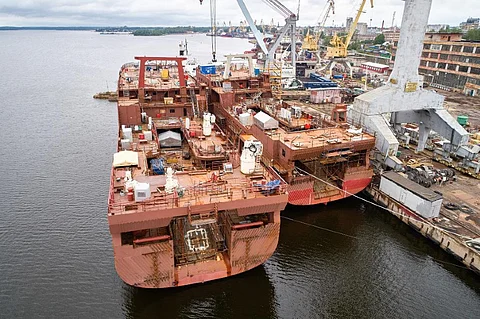

The global fishing industry has suffered a "trial by fire" for at least twenty of the past thirty years thanks to the depredations of sections of the wider so-called green movement. A hard core of the industry has survived that and is now commencing to flourish again.
Some of the criticism of the fishing industry was very well-deserved. Much of the industry was badly behaved, short-sighted and downright vandalistic. However, as always happens in environmental debates, many babies were thrown out with the bath water. There were also large sections of the fishing industry that were very aware environmentally and that knew that overfishing was both economically and environmentally unsustainable.
Most of the surviving fishing industry understands those facts well. Accordingly, they will continue to do well. The world needs seafood and its protein contributions are very widely recognised.
The aquaculture sector, on the other hand, is really only just starting to experience its own "trial by fire". The green movement, in its usual exaggeratedly and downright dishonest way, has turned its attention increasingly to fish farming. They are doing significant damage to the sector.
Again, as with fishing, many fish farming practices are neither economically nor environmentally sustainable. Fish excreta, fish food waste, chemical carelessness and plain aesthetic ugliness all enable the greens to score points against the fish farmers. Fish farms need to move out of the fjords, bays and inlets to the open sea where they are less conspicuous and more diluted. They also need to get much bigger, as has the offshore oil and gas industry, to achieve those ends.
These trends towards greater environmental and economic realism are affecting the design, construction and equipment of the vessels that serve the global fishing and aquaculture industries. As will be seen clearly from reading Baird Maritime during this week, there is considerable investment going into fishing and aquaculture boats. They are being designed and built with long-term sustainability at front of mind.
The vessels presented represent a very global industry with powerful, well-equipped new vessels being built in Spain, Turkey, Scotland, and England to designs from Norway, The Netherlands, Spain and Scotland for owners in Mozambique, Norway, Scotland and England. They are an exciting and impressive fleet of very capable ships. There is much to learn from them.
– "The animal rights NGOs and some so-called serious journals have stepped up their demands for bigger no-take zones and for more sharks to be listed in CITES' appendices, regardless of their abundance and any ongoing mitigation strategies."
– by Eugene Lapointe, president of the IWMC World Conservation Trust and a former secretary-general of CITES
– "Collaborating between countries has clearly improved the effectiveness of surveys providing information on fluctuations in fish availability."
Remember to come back every day to see the latest news, opinion and vessel reviews!
Any news or views about the global commercial fishing and aquaculture industries? Send it through to editor@baird.com.au ASAP (between now and August 6), so we can add it to this current edition of Fishing and Aquaculture Week!
We are after:
Sign up here to be notified in advance about future Fishing and Aquaculture Weeks.
